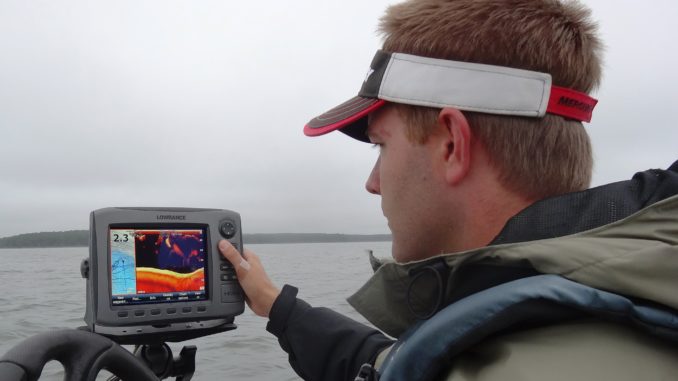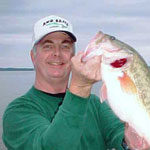
When fish are deeper, being able to find and identify them is now a snap
New technology and developments in fish-finding systems can lead to quick and definitive location of fish-laden hot spots. And summer is an ideal time to take advantage of this technology.
Andy Wicker, a tournament bass fisherman from Pomaria, is a great example of how this boom in technology can give anglers a huge advantage. The 25-year-old is enthusiastic about the new fish-finding equipment.
“I still have to figure out how to catch the fish, but finding them quickly is a great advantage,” Wicker said. “The new, computerized technology is changing fishing for those using it. Because of the bells and whistles, it’s not for everyone, but many fishermen seeking all species of fish love the new technology.
“My dad, Steve Wicker, is a perfect example of fishermen who do fine without it. He refers to himself as ‘old school’ in terms of bass fishing, and he took me fishing in my first tournament, and he is the reason I got hooked on the sport of bass and tournament fishing. When flashers ruled, before anglers had graphs, Dad was always one of the top fishermen. He had learned hot spots through hard work, trial and error and triangulation, and that still works for him. He still catches fish like crazy. But the tools I use help me find the fish and target them precisely in minutes, a chore that used to take him much longer.
“A learning curve exists to fully using this new equipment effectively, but all that is required is dedication and time on the water,” Wicker said. “But from day one, an angler has precise GPS and a great graph. With a multitude of new features, including side scan and down scan, I can pinpoint and interpret targets on points, humps and ledges in minutes that often took lots of time, or were missed, only a few years ago. This is crucial during the summer and winter when bass are in schools and in deeper water.”
Wicker recently said – and demonstrated – that the vast capability of the new technology often enables him to determine the precise location of fish and often even identify fish species.
“If I can be reasonably certain that it is a largemouth, or eliminate some fish as not a largemouth, I put myself in a much better position to catch more bass, a key if fishing a tournament,” he said. “The same is true for others targeting other species of fish.”
On one hump, Wicker interpreted fish marks with bright cores in the arch that he said indicated larger fish; he said he believed those were black bass.
“On some lakes, like those without stripers, I can be pretty confident of what I believe to be black bass,” he said. “On other lakes with good striper populations, sometimes it’s more difficult to tell. But various species align differently, and I also use that information from these units to help with fish identification.”
He cast to one school he identified as black bass and promptly popped the hooks into a 4-pound largemouth. Twenty minutes later, on another hump, he found another school of fish he believed to be perch. He dropped a jigging spoon and promptly caught a hefty white perch.
“Another example of their versatility is when using the side-scan mode looking for a specific target, I may see something interesting to the side, and I mark that location” he said. “After checking my primary target, I go to that place and use other features to specifically identify what’s there. I’ve found some real sweet spots like that and can only imagine how long it would have taken, or if even found, without the use of modern electronics.”
Wicker said some fishermen lament the progress in the electronic world of fish-finding, but the fact is, those using these systems are finding and catching more fish, regardless of species.
“The downside is, they are pricy,” Wicker said. “I am serious about using every legal means possible to help me catch fish so it’s a priority for me. I won’t leave home without it.”




Be the first to comment